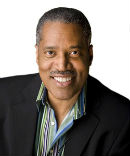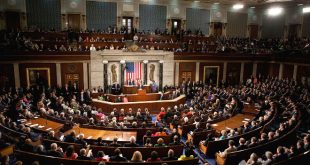 Dear Ms. Fonda:
Dear Ms. Fonda:
Before you travel to Detroit this weekend to campaign for a $12 minimum wage, I suggest you read this letter.
I’m sure you mean well. But are you familiar with the voluminous number of peer-reviewed studies that conclude minimum-wage laws damaged the very people that many of the Hollywood left say they care about — blacks?
Respected economist David Neumark examined all of the major academic minimum-wage studies from the previous 20 years, more than 100 studies in all. Eighty-five percent of the studies found that minimum-wage laws destroy jobs, causing workers to lose jobs and/or hours or causing businesses to shut down. “Minimum-wage laws,” said Neumark, have “a negative employment effect on low-skilled workers.”
Believe it or not, before minimum-wage laws took effect, a black teenager was actually more likely to have a job than a white teen. I repeat — before the impact of federal minimum-wage laws, the first of which was in 1938, a black teen was more likely to be employed than a white teen. What happened?
Nobel-winning economist Milton Friedman calls the minimum-wage law “one of the most, if not the most, anti-black laws on the statute books.” Friedman said: “The do-gooders believe that by passing a law saying that nobody shall get less than $2 an hour or $2.50 an hour, or whatever the minimum wage is, you are helping poor people who need the money. You are doing nothing of the kind. What you are doing is to assure that people whose skills are not sufficient to justify that kind of a wage will be unemployed. …
“The minimum wage law is most properly described as a law saying employers must discriminate against people who have low skills. That’s what the law says. The law says here’s a man who … has a skill which would justify a wage rate of $1.50, $2.00 an hour. You can’t, you may not employ him. It’s illegal. Because if you employ him you have to pay him $2.50. Well, what’s the result? To employ him at $2.50 is to engage in charity. Now there’s nothing wrong with charity. But most employers are not in a position where they can engage in that kind of charity. Thus the consequences of minimum-wage rates have been almost wholly bad, to increase unemployment and to increase poverty. Moreover, the effects have been concentrated on the groups that the do-gooders would most like to help. The people who have been hurt most by minimum-wage laws are the blacks.”
Contrary to popular belief, most people on minimum wages are not men with families, but teenagers and part-time workers, and a disproportionately high percentage of them are young black and brown workers.
The Black Entertainment Television website, in 2011, published an article titled “Black Teens are Fired When the Minimum Wage Rises”: “Economists William Even from Miami University and David Macpherson from Trinity University report that when a state, or the federal government, increases the minimum wage, black teens are more likely to be laid off. … The report focused on 16- to 24-year-old males without a high school diploma and found that for each 10 percent increase in the federal or state minimum wage employment for young black males decreased 6.5 percent. By contrast, after the same wage boost, employment for white and Hispanic males fell respectively just 2.5 percent and 1.2 percent.
“The real hit for black teens occurred, however, in the 21 states that had the federal minimum wage increase in 2007, 2008 and 2009. The findings reveal that while 13,200 black young adults lost their jobs as a direct result of the recession nearly 40 percent more, a total of 18,500, were fired because of the rise in the federal minimum wage.”
A new study on the minimum wage just came in. “Survival of the Fittest: The Impact of the Minimum Wage on Firm Exit” is by two researchers, one with Mathematica Policy Research and the other with Harvard Business School. It focused on whether a minimum wage increase also increased the likelihood of a restaurant shutting down as a result of the increased cost of labor. The researchers concluded that “a $1 increase in the minimum wage leads to approximately a 4 to 10 percent increase in the likelihood of exit.” Not good.
Finally, even California Gov. Jerry Brown, who signed a $15 minimum-wage bill last year, conceded, “Economically, minimum wages may not make sense. But morally, and socially and politically, they make every sense because it binds the community together.” Astonishing. Tell that to somebody who lost a job or failed to get one because of the minimum wage.
Have fun in Detroit, Ms. Fonda. Maybe instead of a speech, take in a Tigers game. You’ll do a lot less damage.
Sincerely,
Larry Elder
COPYRIGHT 2017 LAURENCE A. ELDER
DISTRIBUTED BY CREATORS.COM
Photo credit: By Siebbi – Wikimedia, CC BY-SA 3.0, Link
 Larry Elder is a best-selling author and radio talk-show host. To find out more about Larry Elder, or become an “Elderado,” visit www.LarryElder.com. Follow Larry on Twitter @larryelder.
Larry Elder is a best-selling author and radio talk-show host. To find out more about Larry Elder, or become an “Elderado,” visit www.LarryElder.com. Follow Larry on Twitter @larryelder.
The views expressed in opinion articles are solely those of the author and are not necessarily either shared or endorsed by Black Community News.
 CURE News and Clergy Blog News and Commentary for Christians
CURE News and Clergy Blog News and Commentary for Christians




“It is easier to build strong children than to repair broken men” :Frederick Douglass
Another fine column penned but Larry Elder. Indeed, there should be no Federal Minimum Wage. There should be no minimum wage at all, anywhere. Let the market decide how much for flipping burgers, babysitting, working at the car wash, etc.
Why? Well, $15/HR is really good money in places like Pittsburgh, Cincinnati, Roanoke, and Ft. Wayne. But it is poverty level in Chicago, San Francisco, New York, LA and all the other big cities. I suppose if individual cities want to enact minimum wage laws for their City employees, I guess they could. Still, there just shouldn’t be one,